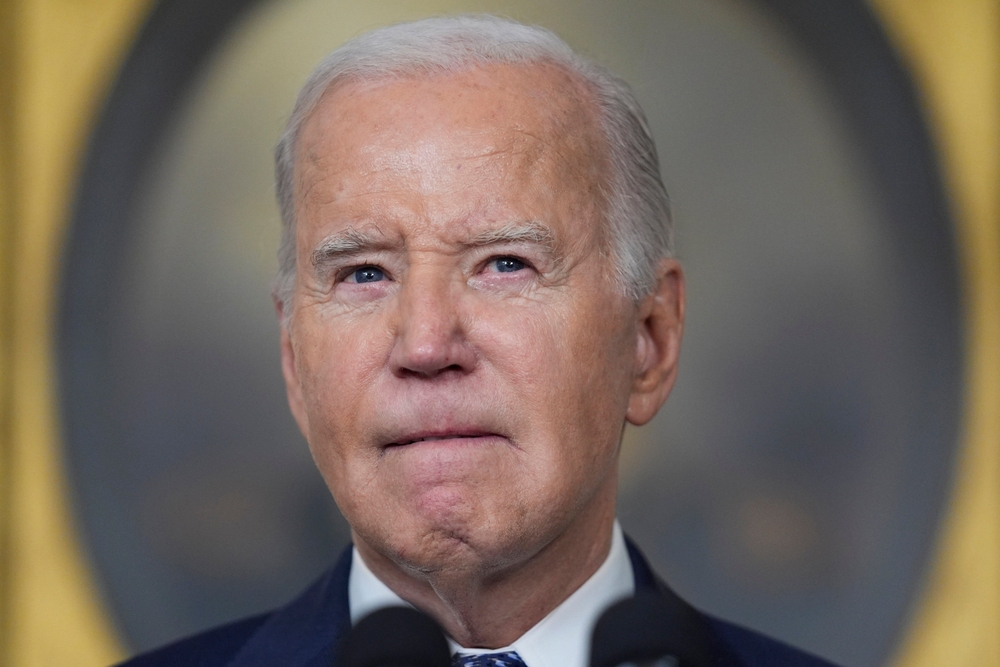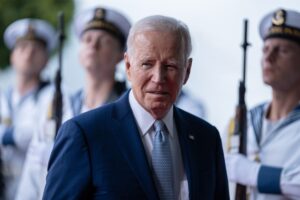Over the past weeks, President Biden has been criticized from all sides for his poor performance during the recent CNN presidential debate, perceived by most people as weak and halting. And since his subsequent public appearances didn’t help him, not even a little bit, there has been an ongoing question on many voters’ minds: is it possible to be too old to be president?
Biden and former President Donald Trump are the two oldest major-party candidates we ever encountered on our ballots. If Biden didn’t drop the race, and he would’ve won the elections, he would have been 82 on Inauguration Day. As for Trump, if he wins, he would be 78.

Biden is the oldest president in U.S. history
If President Biden is reelected, he will be 82 on Inauguration Day and 86 at the end of his term. If former President Donald Trump wins in November, he will be 78 on Inauguration Day at the end of his term. And even if age and mental acuity have a complicated relationship, the candidates’ ages have severely affected voters’ perception of how well they would be able to do their jobs.
That was exactly the case even before the debate: only 15% of voters were at least “extremely confident” that Biden had the physical fitness needed to be president, and 21% felt similarly about his mental fitness, according to an April Pew Research Center report.
To be honest, Trump fared way better, with 36% expressing that level of confidence in his physical fitness and 38% in his mental capacity. To be honest, I bet that the Founding Fathers definitely thought about the presidential age centuries ago.
In fact, it’s baked into Article 2 of the U.S. Constitution, which basically requires that among many other things, one can be to assume the office, there has been a concrete rule about how old a president should be.
Nowadays, almost 80% of U.S. adults surveyed support having the upper age limits for federal elected officials, including the President, according to Pew. However, this limit would have never happened to the architects of the U.S. government in the 18th century, according to constitutional experts, and there are immense barriers to those rules changing anytime soon.
Age was just a number at the Constitutional Convention
The 1787 Constitutional Convention in Philadelphia was rich in intense debates that shaped the Constitution and are still quite memorable. It’s extremely easy to assume that the age requirement was just as much the product of a lot of time and deliberation.
However, that wasn’t necessarily the case. After all, the Founders were quite busy constructing an entire government from scratch, according to Julian Davis Mortenson, a well-known constitutional law professor at the University of Michigan.
“There was a wide array of things they had to fix.” Should there be an actual executive branch in the first place? Also, would there be one single president or multiple ones? And how would that be decided?
There’s only so much bandwidth even over the course of a four or even five-month drafting process. Some of the things they took into consideration were carefully thought out. And some things were never on the table, in all fairness.
When the Founding Fathers settled on the idea of a single and powerful executive, it was pretty clear that the role called for someone trustworthy and fully capable of taking up the mantle. So how do you screen for that?
The Founders came up with a solution: a series of formal requirements that, for them, correlated with the needed qualities. They would have to be a resident of the U.S. for a minimum of 14 years to make sure they were familiar with the laws and customs of the country, and they would have to be a natural-born citizen to protect the presidency from outside influence.
The minimum age limit was also put into place due to the fact that “age was the best corollary they had for sound judgment, maturity, and what we might refer to as wisdom. They decided on 35- slightly higher than the Senate requirement (30) and the House (25).
Presidential age and mental capacity became more and more relevant
As time went by, industrial-era medical advances such as antibiotics and antiseptics implied that people tended to live longer. Since it applies to presidents as well, but presented disabling medical emergencies, the question of capacity to serve started to resurface.
For instance, President Woodrow Wilson had a stroke in 1919 at 63 years old, that “really compromised” his capacity to work. He also became emblematic of that concern. For the next year and a half of his presidency, Wilson was seen mostly bedridden, and his wife, along with the doctors, played a huge part in helping him finish his presidential duties.
In the meantime, the public was mainly left in the dark. (the extent to which they were assisting him with his presidential duties is still subject to debate.) It became quite clear to those in Wilson’s Cabinet that he wouldn’t step aside from the role to let someone else, even if it was his vice president, assume office.
No one could do anything about it: after all, the Constitution mentioned what would happen when presidents died but forgot to mention what would happen if their ability to serve became extremely diminished.

What would it take to consider installing a presidential age limit?
Even if the polls show widespread support for age limits, the obstacles to changing the requirements for becoming the president are quite considerable. For a rule change to stand up in courts, the Constitution itself would need to be amended.
The bar for passing an amendment is quite high – it also needs to clear a two-thirds vote in the House and Senate, or two-thirds of the states can actually petition Congress to call a constitutional convention. From that point, three-fourths of the country’s state legislatures need to ratify the amendment for it to become a serious part of the U.S. Constitution.
It seems quite unlikely that Congress would actually be amenable to making any kind of changes to the presidential age requirement. Serving as a representative or senator is oftentimes seen as a stepping stone to the presidency.
If Congress becomes reluctant to impose any age limits because they might cut themselves off from the White House by doing this, then a convention of the states is the only way out. And as history has shown, Congress is perfectly willing to throw up roadblocks to that process. So now it’s not just a question of politics. It’s more a matter of neuroscience, so here’s the most basic question: what would the limit be?
There isn’t any defined age at which a person’s cognitive capacity declines and some people don’t decline much at all. At the same time, others, including Reagan’s daughter, came up with a series of suggestions that implied cognitive tests as a gauge.
“We would need to have to come up with some kind of good, empirical, verifiable, and reliable test on which there’s a strong consensus to decide when someone would be too old.” as Melton explained. “The other thing you might do is just go with a bright line and decide that after 70, that’s it.”
If you found this article interesting, we also recommend checking: 7 Vital Things to Do in Your 70s for a Happy Life



















